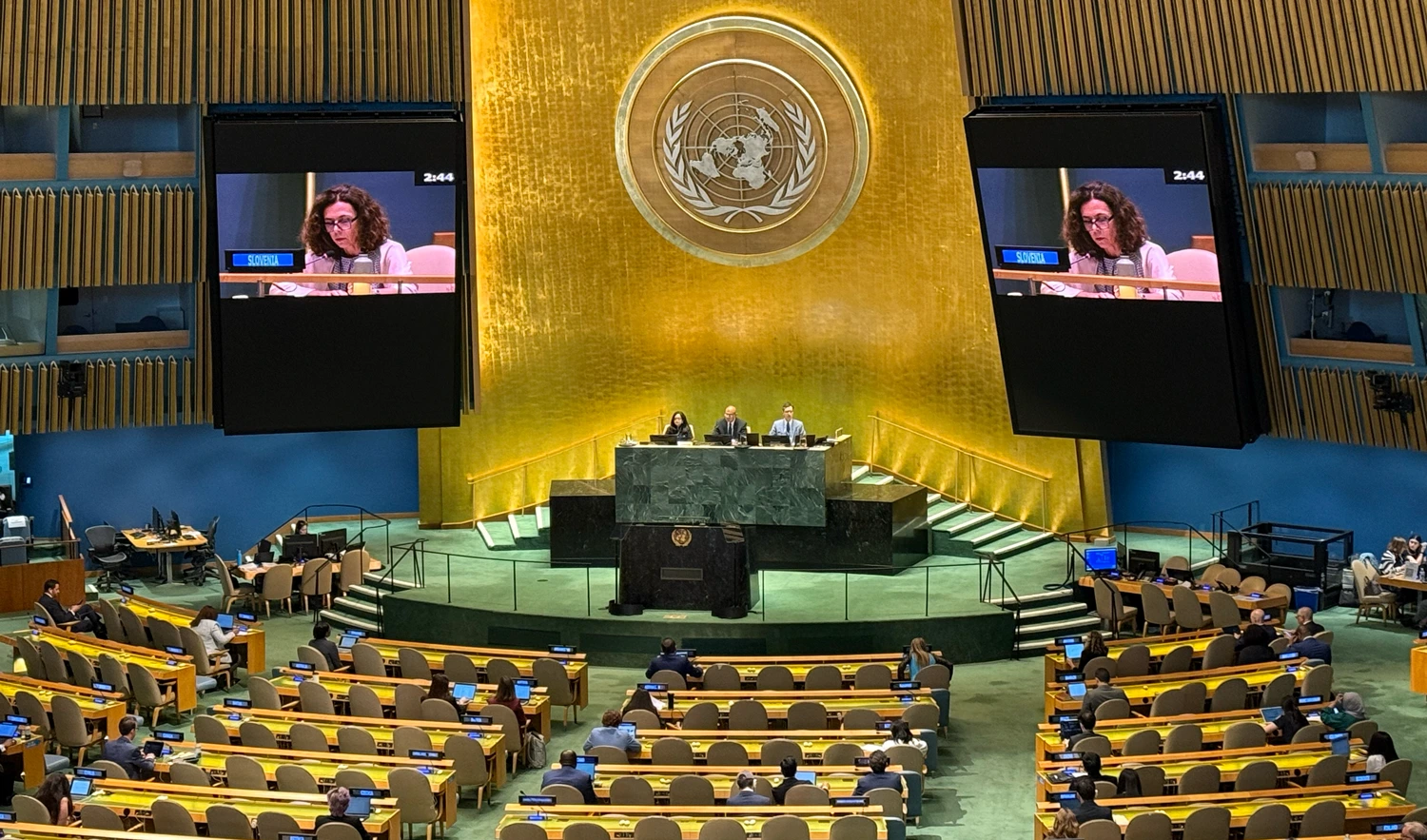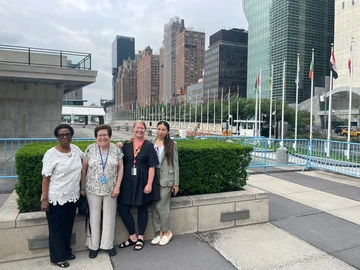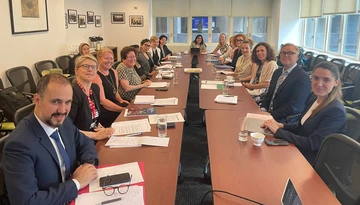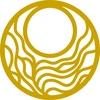
Image: Sharon B. Megdal
The December 2026 United Nations Water Conference, which will be held in the United Arab Emirates, was the focus of meetings at UN Headquarters in New York on July 9 and 10, 2025. On July 9, the UN General Assembly held a meeting in which themes for the interactive dialogues to occur at the conference, as documented immediately below, were adopted by consensus.
Themes of the interactive dialogues of the 2026 United Nations Water Conference to Accelerate the Implementation of Sustainable Development Goal 6: Ensure availability and sustainable management of water and sanitation for all
The General Assembly, recalling its resolution 78/327 of 6 September 2024, decides that the themes, in no particular order of priority, of the six interactive dialogues of the 2026 United Nations Water Conference to Accelerate the Implementation of Sustainable Development Goal 6: Ensure availability and sustainable management of water and sanitation for all, mandated in paragraph 6 of the resolution, will be:
(a) Water for people: the human rights to water and sanitation, including for those in vulnerable situations, for healthy societies and economies;
(b) Water for prosperity: valuing water, water-energy-food nexus, advancing integrated and sustainable water resource management, wastewater and water-use efficiency across sectors, and economic and social development;
(c) Water for planet: climate, biodiversity, desertification, environment, source to sea, resilience and disaster risk reduction;
(d) Water for cooperation: transboundary and international water cooperation, including scientific cooperation, and inclusive governance;
(e) Water in multilateral processes: Sustainable Development Goal 6, the 2030 Agenda for Sustainable Development and beyond, and global water initiatives;
(f) Investments for water: financing, technology and innovation, and capacity-building.
Member nations offered comments pointing to the criticality and centrality of water, along with the substantial work remaining to advance Sustainable Development Goal (SDG) 6. The broad-ranging comments, which are accessible through the posted recording, address the following issues (and more): inclusion of women, youth, rural, and Indigenous voices; cooperation, including across boundaries; economic development; sustainability; climate; human rights; financing; technology; and innovation.

From left: Zodwa Dlamini, Sharon B. Megdal, Elizabeth Koch, and Yolanda López-Maldonado
Later on July 9, a multistakeholder preparatory event was held. The agenda included remarks by dignitaries, including Ms. Retno Marsudi, UN Secretary-General’s Special Envoy on Water, and Mr. Pedro Arrojo-Agudo, Special Rapporteur on human rights to safe drinking water and sanitation, along with representatives of the 2026 UN Water Conference co-hosts Senegal and United Arab Emirates, speakers from other member nations, and several other individuals. Among the NGO representatives and others offering comments was Tucsonan and recent University of Arizona graduate Dr. Aminta Menjivar, who represented the International Indian Treaty Council. Lesha Witmer, representing Women for Water Partnership, received rousing applause for her call for broad-based involvement in the planning for and delivery of the interactive dialogues. These comments, which were also recorded, reinforced and expanded upon those made at the earlier General Assembly meeting, noting particularly the importance of private and public sector participation and reducing barriers to broad participation. The importance of involving academic institutions was also noted! In fact, broad and inclusive participation in the planning for and delivery of the UN Water Conference was perhaps the key theme of the discussions held July 9 and 10.
The final preparatory Stakeholder Brainstorm dialogue, held on July 10, was less structured and offered the packed room of stakeholders more opportunity for brief interventions. There, voices heard included members of Women in Water Diplomacy Network (WWDN), for which I serve on the Global Leadership Council (GLC), and individuals representing youth and young professionals, including a 16-year-old speaker. Though I was not called upon, GLC Co-Chair Dr. Zodwa Dlamini of South Africa, GLC Member Dr. Yolanda López-Maldonado of Mexico and Austria, and WWDN Process Support Team Lead Elizabeth Koch of New York City offered comments emphasizing the need to integrate science and the knowledge and viewpoints of Indigenous people, women, and youth into the interactive dialogues and conference planning. Dr. Dlamini, in response to a question about WWDN’s offer to actively support the UN Water Conference’s objectives, noted that WWDN is ready and eager to assist.

Women in Water Diplomacy Network Partners Meeting, July 8, 2025.
In advance of the official meetings, the WWDN delegation convened a meeting to discuss partnerships and its plans for the 2026 UN Water Conference. The meeting was hosted by Tanja Miškova, Ambassador-at-Large for Water Diplomacy at the Ministry of Foreign and European Affairs, Slovenia, and WWDN member. Network growth, activities, financial status, and preliminary plans to host the WWDN Third Global Water Forum just prior to the UN Water Conference were discussed. I then moderated the sharing of perspectives by the following individuals: Ms. Shaima Gargash, Director of Energy & Sustainability at UAE Ministry of Foreign Affairs; Chairwoman Amelia Flores, Colorado River Indian Tribes and Co-Chair of the Indigenous Women’s Leadership Network (excerpts from written statement shared); Mr. Antti Rautavaara, Special Envoy for Water, Centre for Peace Mediation, Ministry for Foreign Affairs of Finland; Ms. Isabella Pagotto, First Secretary, Sustainable Development and Humanitarian Affairs / Permanent Mission of Switzerland to the United Nations; Dr. Miriam Haritz, German Water Director – Federal Ministry for the Environment, Climate Action, Nature Conservation and Nuclear Safety; Dr. Martina Klimes, Senior Manager, Advisor for Climate, Water, and Peace, Stockholm International Water Institute; Prof. Kaveh Madani, Director, United Nations University Institute for Water, Environment and Health; Ms. Kie Riedel, Program Officer, Save Water Initiative, Conrad N. Hilton Foundation (video message); and Ms. Michelle Benzing, Policy Analyst on Gender, Climate, Peace and Security, UN Women. All remarks, which reflected on past partnerships and/or opportunities for future engagements and partnerships, provided useful insights into strengthening and expanding WWDN programs in general and involvement in the 2026 UN Water Conference in particular.

This preparatory meeting and the informal WWDN gathering that evening facilitated many connections and conversations in advance of the July 9 and 10 meetings at the UN, thereby enabling WWDN and its partners to have a recognizable presence at the UN meetings. Not only was WWDN mentioned in the remarks of several speakers, the WWDN clip was worn by many, including member state delegations championing the Network’s mission! This all points to the benefits of collective engagement, dialogue, partnerships, and, very importantly, listening! The sharing of perspectives and information contributes to meaningful dialogue and actions.
With a lot of focus on the 2026 UN Water Conference modalities, we must not lose sight of the end goal, namely the need to act. Actions are needed on Sustainable Development Goal 6 and its many sub-goals. My hope, shared by the participating WWDN delegation, is that the 2026 UN Water Conference will raise global, regional, and local ambition and spur action to deliver tangible results on the global goal of ensuring sustainable access to water and sanitation for all.
A final note: I thank the Stockholm International Water Institute for facilitating my ground pass and registration for the July UN meetings.

